PM desperate to talk about anything other than Gazan visas
A titanic struggle of wills between Anthony Albanese and Peter Dutton has emerged as the PM ruthlessly uses the power of incumbency in government and parliament to block, bully and frustrate the Opposition Leader.
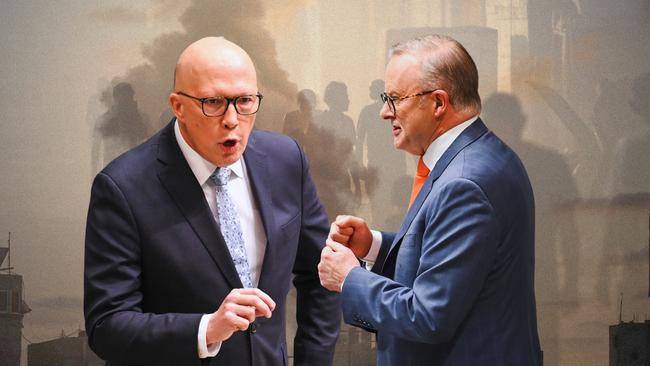
The initial or superficial contest during the past two weeks of parliament has been over Labor’s granting of almost 3000 tourist visas to people coming from war-torn Gaza since the horrific Hamas terror attacks on October 7 last year killed 1200 Israelis and sparked the Gaza conflict that has killed tens of thousands.
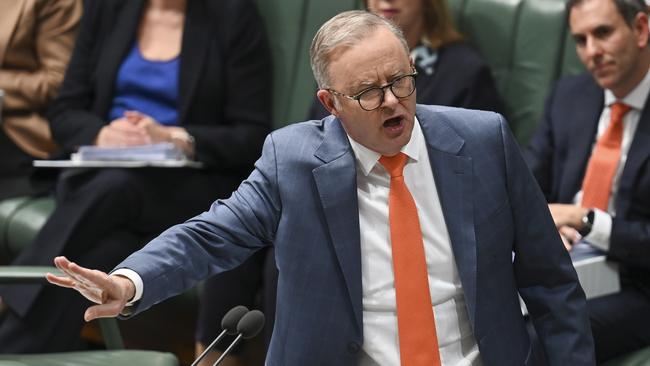
Dutton’s attack was aimed at the government’s granting of the visitor visas to at least 1300 people who have arrived in Australia without full ASIO security checks, biometric tests or face-to-face interviews, and at a rate far outstripping that of our allies and similar nations.
After calling for a blanket ban on people coming from Gaza until full security checks were in place and preferably conducted in a third country, Dutton set out on a determined parliamentary cross-examination of Albanese, whom he has accused of misquoting ASIO director-general Mike Burgess, hiding behind public servants, making Australia less safe and failing a “moment of truth” in not clearly declaring that support for the proscribed Hamas terror group was grounds for rejecting a visa application on the grounds of character.
Albanese’s response was to refuse to answer questions, to stonewall in parliament, argue that the same intelligence agencies and “even personnel” were in place now as under the Coalition, accuse Dutton of sowing division and try desperately to shift the focus off the long-running problem with mismanaged visas.
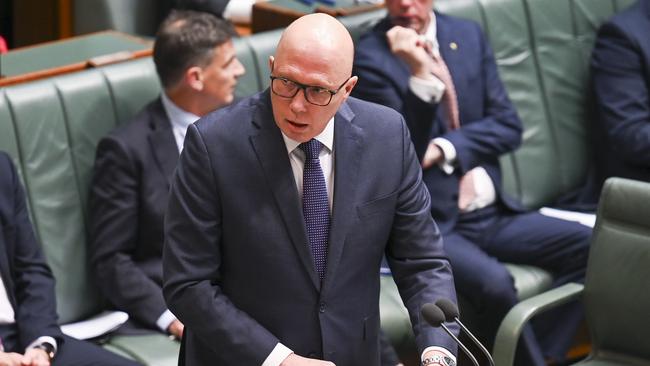
Typically, in response to an opposition question, Albanese provided no facts and turned the answer into an attack: “But that’s not the real point of this question, is it? It’s not to get an answer. It’s not actually to get information. It’s to sow doubt and to stoke division and to create fear, and everyone knows it.”
The Prime Minister and new Immigration Minister and Government Leader of the House Tony Burke also used every parliamentary tactic and trick to head off Coalition questions, stall for time, gag Dutton and push the debate away from national security and on to the economy and cost of living.
But, in all of this politicking and parliamentary posturing, there were much deeper strategies at play that were a test of strength and political judgment between Albanese and Dutton, a determination to dominate debate and a last-ditch, pre-election framing of the leadership of both men.
What was at stake was a test of wills and character, a challenge to political judgment and timing, an assessment of the impact of different issues and a trial of patience.
Dutton had embarked, once again, on a course of exploiting public concerns about the months of visa bungles and violent crime committed by people released from immigration detention and the legacy of failed ministers in immigration and home affairs.
In response to being labelled a racist, Dutton didn’t retreat: “It was a very serious debate about the government’s change of arrangements for allowing people to come in from a war zone of Gaza, an area controlled by a listed terrorist organisation. The government’s brought people in on a tourist visa, so no checks have really taken place. We’ve also known that face-to-face interviews weren’t even conducted.
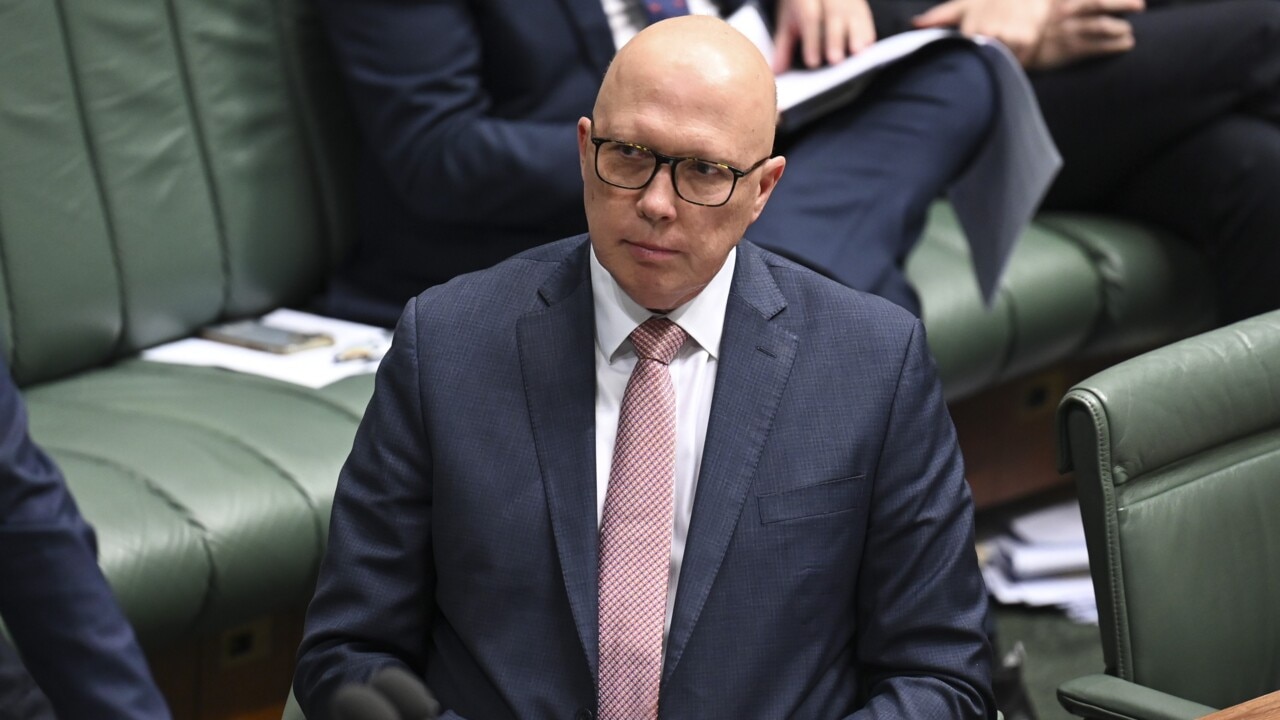
“So, if you’re called a racist for questioning why that happened, particularly when no other country in the world has done it, then I think, frankly, it reflects more on that person than me,” he said.
Certainly Dutton’s judgment on the issue was borne out by polling taken after the previous weeks’ concentration on Gaza visas and security that showed the Coalition going even further ahead on the issues of immigration, national security and crime, all of which rated – after the cost of living – as the public’s main concerns.
There was also a political ploy to ensure – as the Coalition did with the bungled visas for criminals and those released from immigration detention – the groundwork was laid so that any revelation of a security breach or transgression by those already in Australia from Gaza would have immediate and damaging consequences.
Here, Dutton’s patience was tested, as Albanese sought to ruthlessly grind out a tough sitting week, and he laid traps for the months to come on visas and security.
As with the last case of visa debacles, Dutton has shown that a steady build-up of questions, dozens of them, can create an atmosphere of uncertainty and lay the foundation for a terrible retribution if there is a new development.
So, Dutton was determined in parliament to stick to the visa theme, keep pressure on Albanese as part of increasing a portrayal of him as being weak and “soft on national security”, prosecute the Gaza visa concerns while parliament was sitting and starve Albanese of free time to talk about his agenda on childcare, paid parental leave, tax cuts and wage rises.
Next week the concerns about the cost of living, inflation and economic management will still be there to be pursued and do not need the forensic opportunity that parliamentary question time provides and is required for such a complex issue.
Indeed, it was not until the last question of the last sitting day that Albanese was forced into the extraordinary position of not clearly stating that “support for Hamas” – a proscribed terrorist group responsible for what he described in parliament as horrific – would fail a character test for entry into Australia on security grounds.
Given the evidence this week of the Reserve Bank’s real consideration of an interest rate rise that showed RBA governor Michele Bullock was not “jawboning” the markets with a faux intent of lifting rates but, like Samson, was using a real jawbone to smite the enemy of inflation and then threatening to bring down the economic-political temple, there was no need for Dutton to divert.
Jim Chalmers sought to humiliate and bait his counterpart, opposition Treasury spokesman Angus Taylor, into diverting Dutton from immigration on to the economy as part of a parliamentary and political strategy designed to make the Coalition appear not to care about voters’ real concerns.
“Today in question time, every single question was on the Middle East and not one single question was on Middle Australia,” the Treasurer jeered.
“We are focused on the main game on this side of the house, which is the cost of living. We’re fighting inflation, we’re delivering surplus budgets, we’re rolling out cost-of-living help and, very importantly, we are ensuring that more Australians earn more and keep more of what they earn.
“You wouldn’t know it from those opposite, but the No.1 pressure that people feel right now is cost-of-living pressure. That’s why it’s our No.1 focus as a government, from the Prime Minister right through our government.”
Likewise, Albanese pushed a self-serving line suggesting Dutton change course from his “political expediency that isn’t concerned about cost-of-living pressures, that’s not concerned about jobs, that’s not concerned about wages, that’s not concerned about our economy, that’s not concerned about social policy, that’s not concerned about the environment or tackling climate change or any of the issues that Australians are talking about in their households”.
At one stage Dutton’s frustration showed in the chamber as Chalmers continued to change the opposition’s course and moved a pointless motion to gag the Treasurer which, of course, failed in the face of the government’s majority.
On the back of teal independent Zali Steggall accusing Dutton of being a racist, Albanese grabbed every opportunity to describe Dutton as angry and divisive as he, too, sought to frame Dutton as unfavourably as possible ahead of the election, which must be held by May next year.
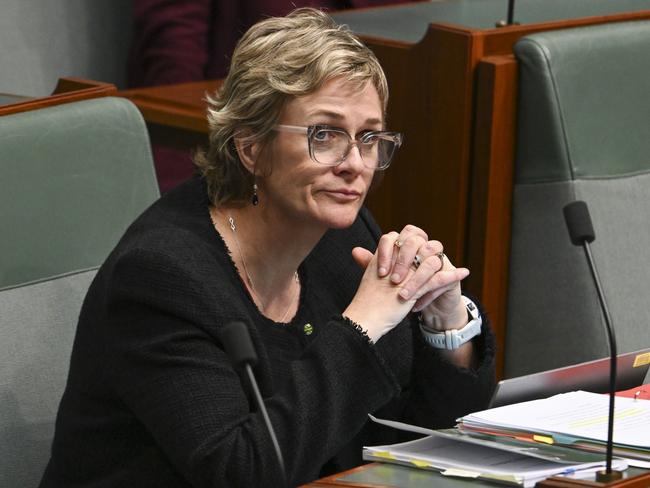
“I think that people will be having a look at this bloke who, ever since he walked into the parliament as a new member, has always looked to divide, has always looked to bring Australians apart, not to bring Australians together,” he told parliament. “Even when he left this parliament, as he did during the apology, it was all about divisions – and then he apologised for it. He said that Lebanese migration was a mistake under the Fraser government, and then he said he apologised for it.
“He hasn’t yet apologised to Africans in Melbourne, for when he said that people couldn’t get out. He continually looks to pretend that he is so strong, but nastiness is not strength. Punching down on vulnerable people is not strength. But that is what this bloke does. It shows Australia who he really is every day,” Albanese said as he added “sledging people in western Sydney”.
Dutton’s parliamentary response was to accuse Albanese of abrogating his national duty, failing a moment of truth, hiding behind public servants and misrepresenting the director-general of ASIO.
“He’s willing to misrepresent the director-general of ASIO to suit his own failings, the fraud that he is,” Dutton said.
From now until the end of the year there are only five more parliamentary sitting weeks and probably only another three or four next year before the election must be called in April at the latest. Albanese has the advantage of incumbency, which he is clearly capable of using, he only has to hold the seats he now has to be returned to government and enjoys a large buffer of sympathetic independents and Greens should minority government be necessary.
Dutton is in opposition, he is demonstrating sound political judgment and tactics, but he faces the almost impossible task of winning about 15 more seats to become prime minister as well as an unlikely, at least extremely difficult, task of convincing seven or eight independents to support him if minority government beckons.
After this week, while cost of living remains the No.1 priority for everyone and will be the key to the election, there is clear evidence Labor must lift its voter support beyond the 32 per cent it has in the polls, where it trails the Coalition on each of the most important issues – from crime to the economy – in voters’ minds.
Albanese and Dutton also showed this week that they are not giving up and certainly not complacent while they try to paint the darkest picture of their opponent. This is a war of attrition with no clear movement either way at this stage.


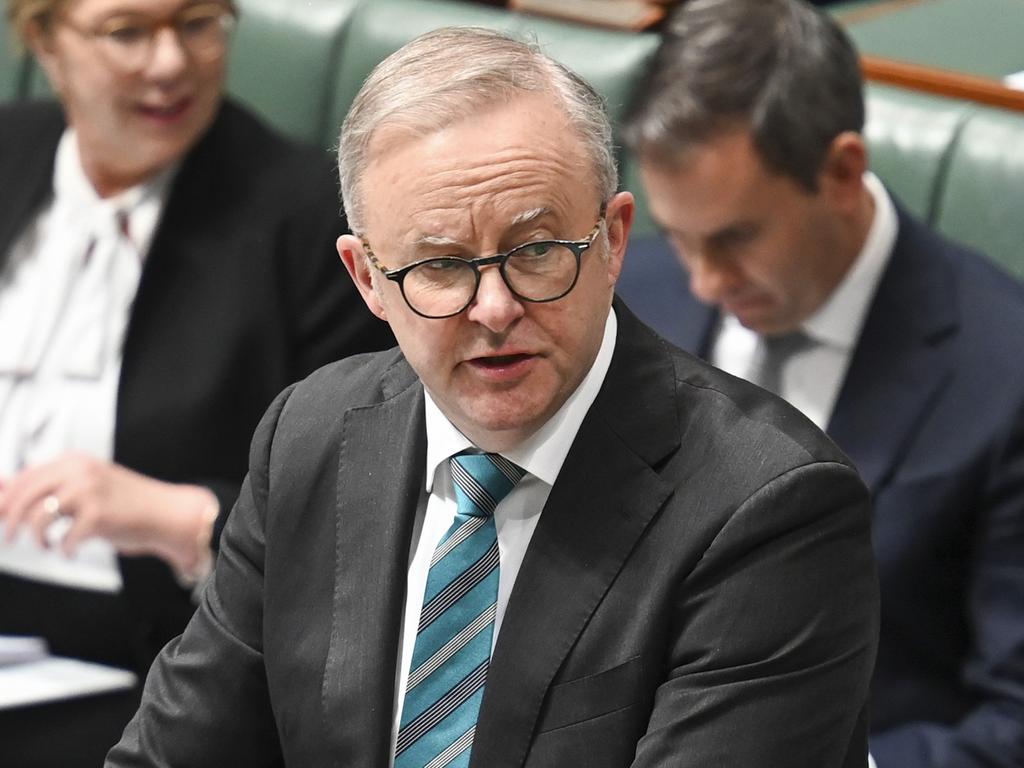
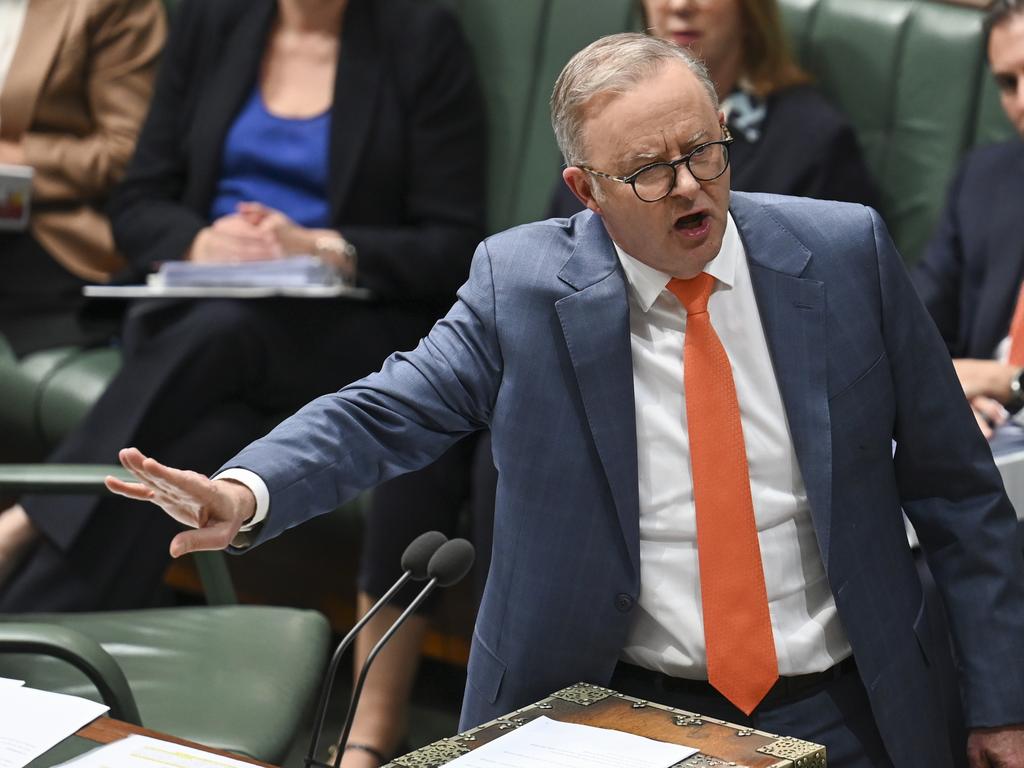
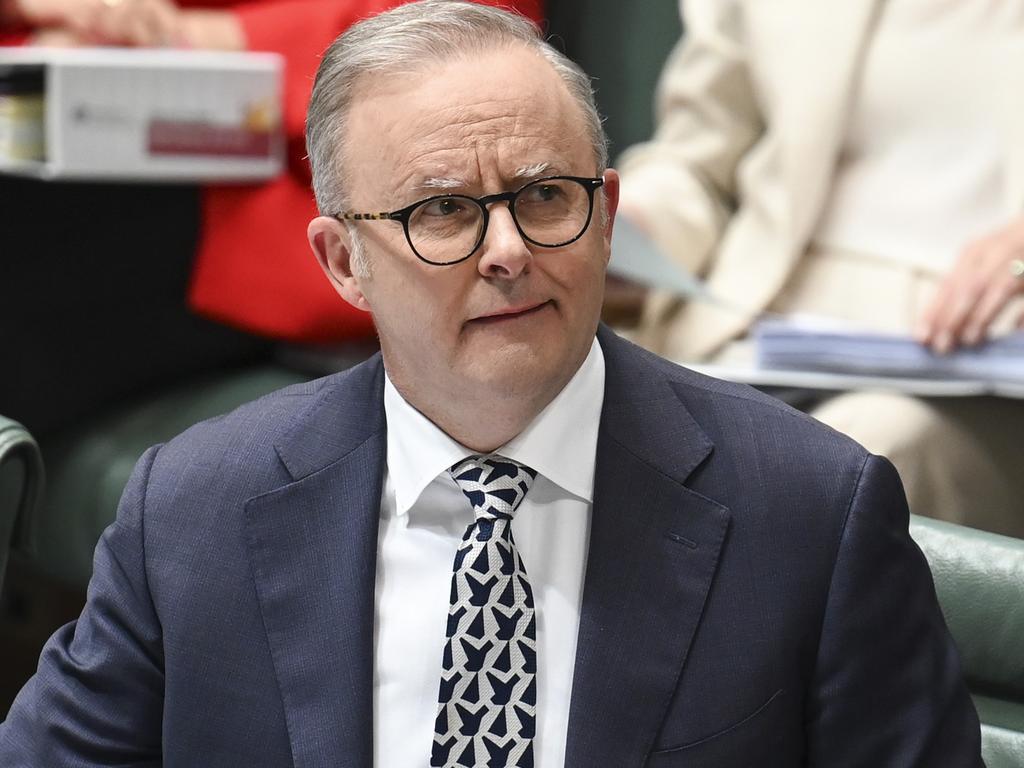
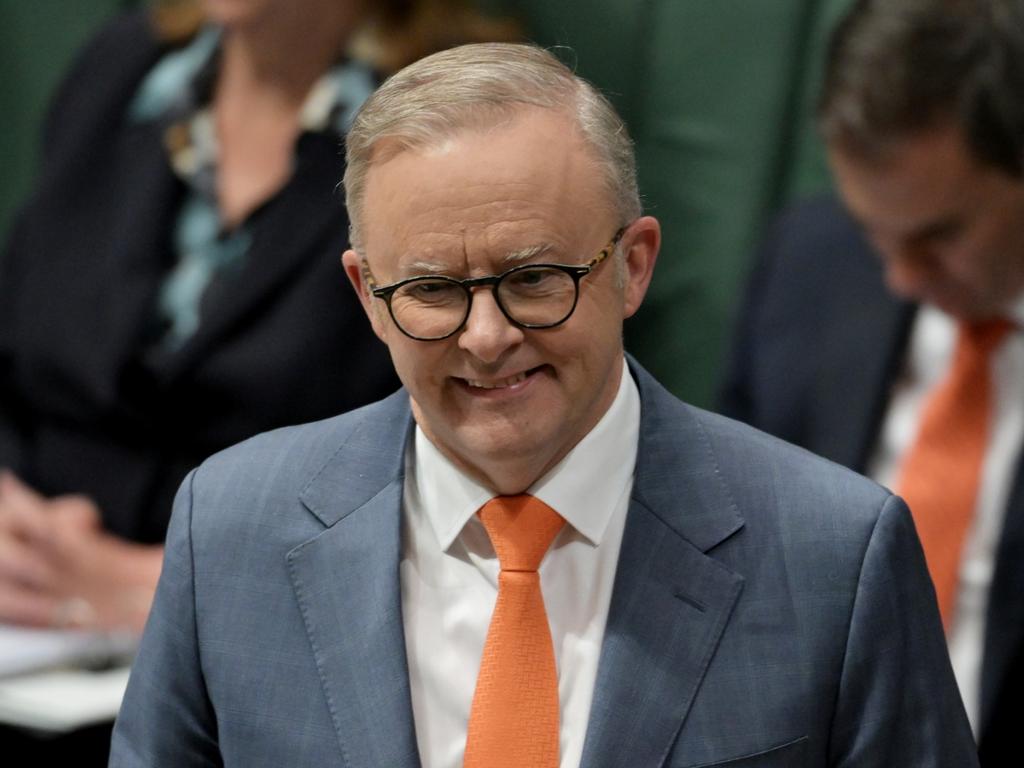


A titanic struggle of wills between Anthony Albanese and Peter Dutton has emerged at the beginning of the spring parliamentary session as the Prime Minister ruthlessly uses the power of incumbency in government and parliament to block, bully and frustrate the Opposition Leader.